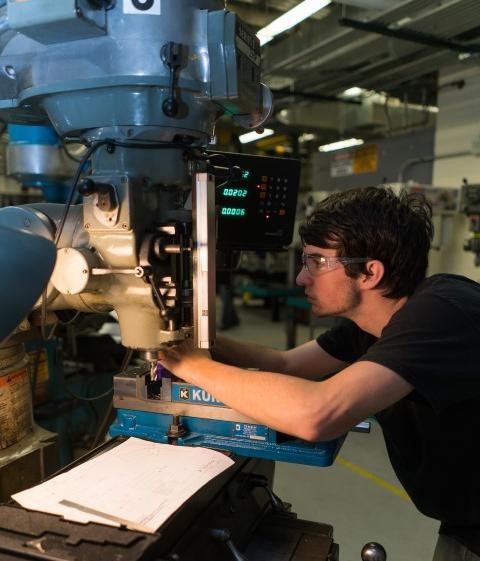
 The “skills gap” has become a popular buzzword, and for good reason. In 2016, nearly
half of U.S. employers reported that they faced difficulty filling jobs due to lack
of available talent. Both nursing and manufacturing in particular face a critical
shortage of skilled workers, a trend driven largely by the aging baby boomer generation.
The “skills gap” has become a popular buzzword, and for good reason. In 2016, nearly
half of U.S. employers reported that they faced difficulty filling jobs due to lack
of available talent. Both nursing and manufacturing in particular face a critical
shortage of skilled workers, a trend driven largely by the aging baby boomer generation.
Just look at the stats:
Harper College has heeded the call to close the skills gap, in part by emphasizing partnerships with the business community.
“Harper plays a key role in preparing a skilled workforce for our local community and beyond,” said Mary Beth Ottinger, Dean of Career and Technical Education. “Individuals need to be able to access the training they need to succeed in 21st century jobs, and employers need a reliable pipeline of workers.”
Harper’s Advisory Committees, for example, consist of industry leaders who help review curriculum and share information about changing trends in the marketplace so students have the most current skills possible in their fields upon graduation.
Harper also maintains more than 300 partnerships with area businesses, ensuring students receive hands-on training in high-tech fields. Many companies even lend or donate equipment so students learn on the same devices used by their future employers. Harper’s new Surgical Technology Suite, for example, was outfitted largely from donations by Advocate Good Shepherd Hospital in Barrington.
Genevieve Frey, Director of the Cardiac Care Unit at Ann & Robert H. Lurie Children’s Hospital of Chicago, earned her Associate in Science degree in nursing from Harper.
 “Harper College produces strong nurses who are making a difference,” she said. “Both
standards for the program and faculty expectations are high. It’s been rewarding to
channel my energy into making things better at the bedside so our patients can receive
the highest quality of care and achieve their best outcomes.”
“Harper College produces strong nurses who are making a difference,” she said. “Both
standards for the program and faculty expectations are high. It’s been rewarding to
channel my energy into making things better at the bedside so our patients can receive
the highest quality of care and achieve their best outcomes.”
Through Registered Apprenticeships in programs such as Insurance, Banking/Finance and CNC Precision Machining, Harper students graduate debt-free, with years’ worth of work experience under their belt and a guaranteed job. Businesses benefit from a low-risk hiring strategy that builds loyalty and allows employers to develop training programs that pass on the knowledge of veteran employees before they retire.
To better educate for today’s high-tech jobs, Harper College is proposing the expansion of its health careers and manufacturing facilities. This is part of a larger community-driven plan for Harper’s future. Voters will consider the referendum question – which wouldn’t raise taxes – on November 6.